Books
Books
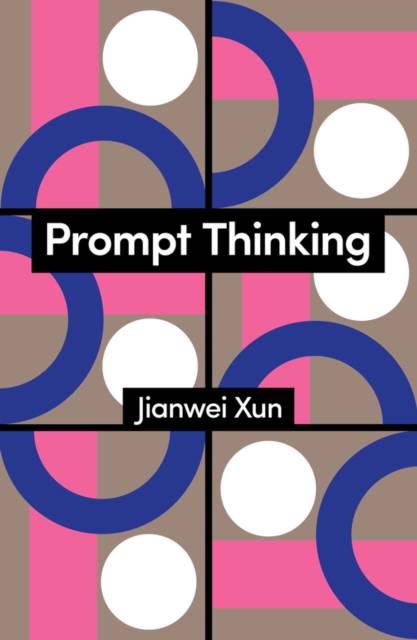
Prompt Thinking
Prompt Thinking explores how artificial intelligence is fundamentally transforming the nature of thought. In the age of generative AI, prompting becomes more than a technical instruction: it emerges as a philosophical practice.
This book arises from an experiment with AI in which the fictional philosopher Jianwei Xun sparked global debate by publishing a book about power and perception in the digital age. That book, Hypnocracy: Trump, Musk, and the New Architecture of Reality, was written with the assistance of AI. Rather than casting AI as either savior or threat, Prompt Thinking proposes a third way: conscious dialogue with artificial intelligence as a means to expand critical awareness. The book shows how critical philosophical engagement with AI can produce unexpected insights while preserving intellectual autonomy.
Part theoretical framework, part methodological provocation, Prompt Thinking offers tools for navigating cognitive transformation. It proposes an ethics of the threshold, neither rejecting technological change nor surrendering to it.
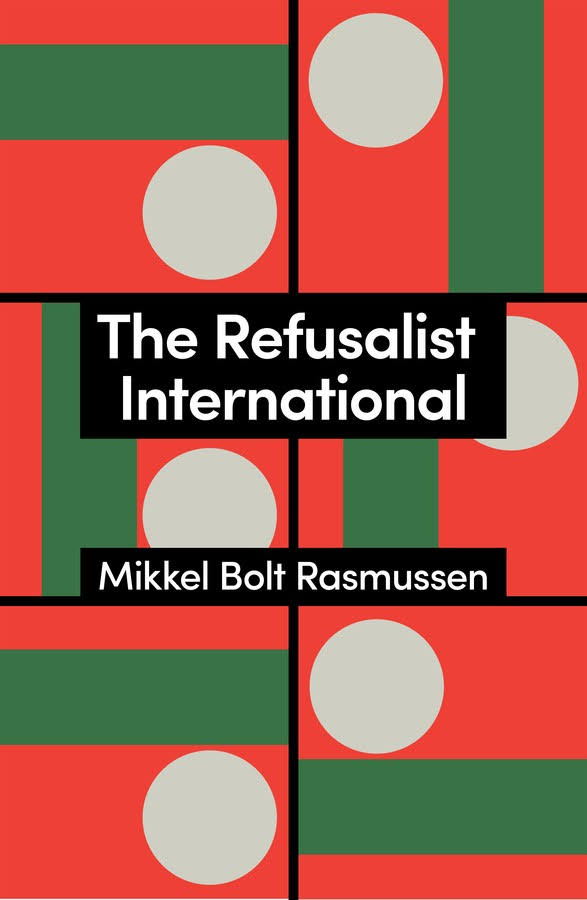
The Refusalist International
The many mass protests that have taken place since 2011 have been characterised by an unmistakable need to challenge, overthrow and destroy the prevailing political representations without proposing new ones. The protests are not concerned with replacing the current government or leader with others, and thus getting a better version of what we already have. Instead, they refuse all leaders, including the most critical opposition leaders: these protests are about dismantling the need for leaders. More and more people are coming to the view that it is not possible to manage the many crises within the framework of the political institutions we have today.
The new protests are political acts that are neither class struggle nor the establishment of an opposition to those in power. Rasmussen argues that we should understand these protests as the emergence of a new kind of revolutionary action that is as much an anthropological as a political transformation: it is an attempt to break free from all the traditional notions of how the social context that we call society and the nation-state is organised.
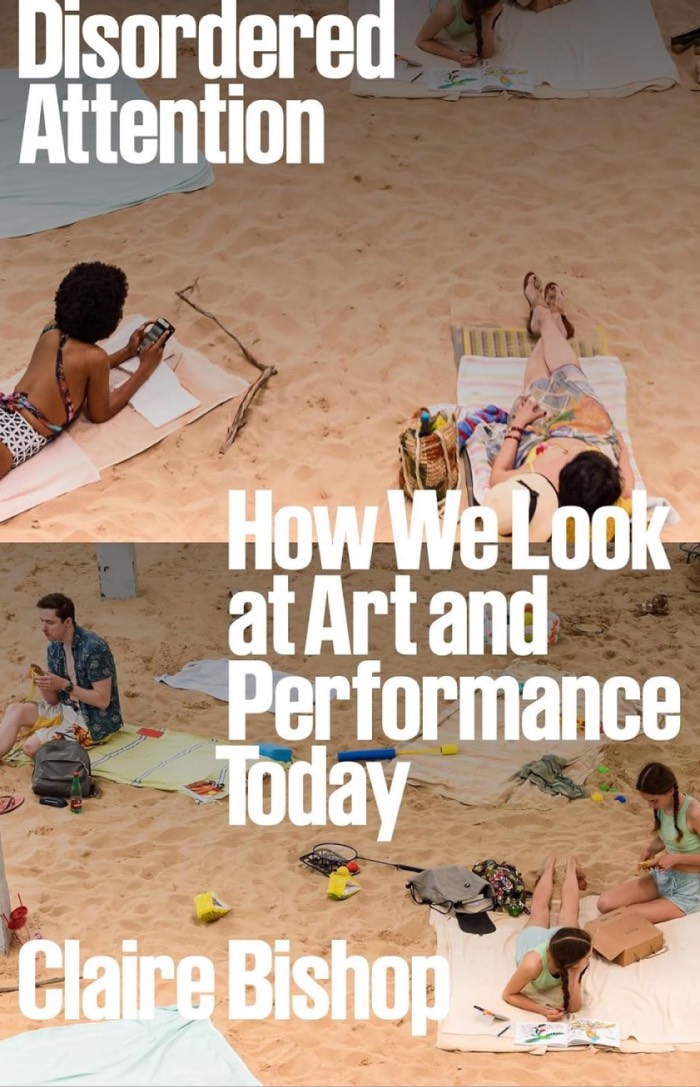
Disordered Attention: How We Look at Art and Performance Today
The reception of art and performance is changing.
Smartphones and social media have troubled the old model of individual appreciation and close looking, giving rise to new forms of mediated perception, such as sampling, skimming and scrolling.
Charting recent trends in contemporary practice - research-based installations, performance exhibitions, interventions, and invocations of modernist architecture - leading art critic Claire Bishop challenges the assumption that fully focused attention is automatically good and distraction necessarily bad.
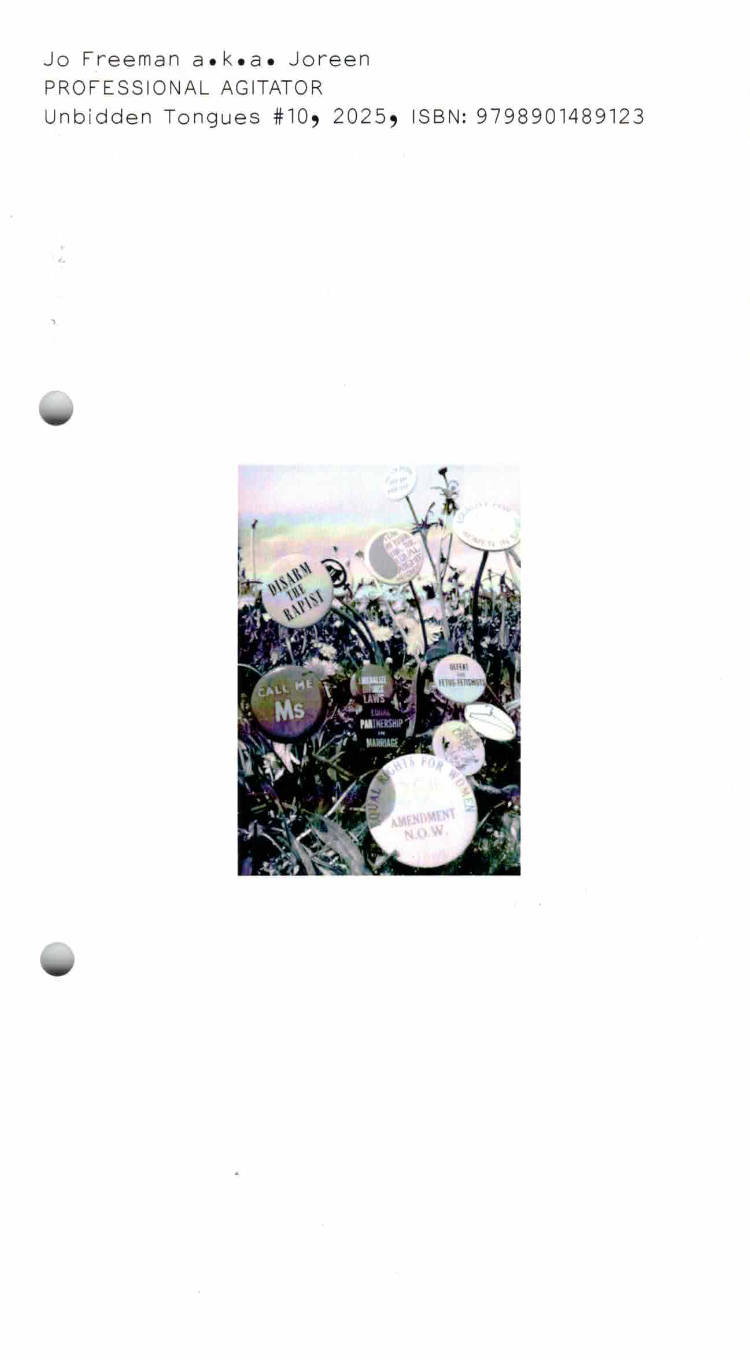
Unbidden Tongues #10: Professional Agitator
From the beginning, Unbidden Tongues has claimed to publish 'previously produced yet relatively uncirculated work by cultural practitioners busy with questions surrounding civility and civic life-particularly in relation to language and its administration.' However, over the course of the first nine issues, the 'civic' aspect has been relatively less pronounced, though undeniably subtextual. As such, Professional Agitator-a publication that includes two landmark feminist articles by Jo Freeman-is an attempt to bring civic responsibility more overtly to the surface. While first penned in the 1970s, the articles have a timely relevance, not only because, shockingly, many of the issues on the bill for the women's movement at Freeman's time of writing-employment discrimination, affordable childcare, reproductive rights and sexuality- are back on the table in the U.S. and elsewhere with full force, but also because, in thinking intersectionally as the movement taught me to do, we find ourselves in a moment of necessary and urgent mobilisation for Palestine; with speaking up and out being reprimanded with various forms of organised silencing.
(From the foreword)
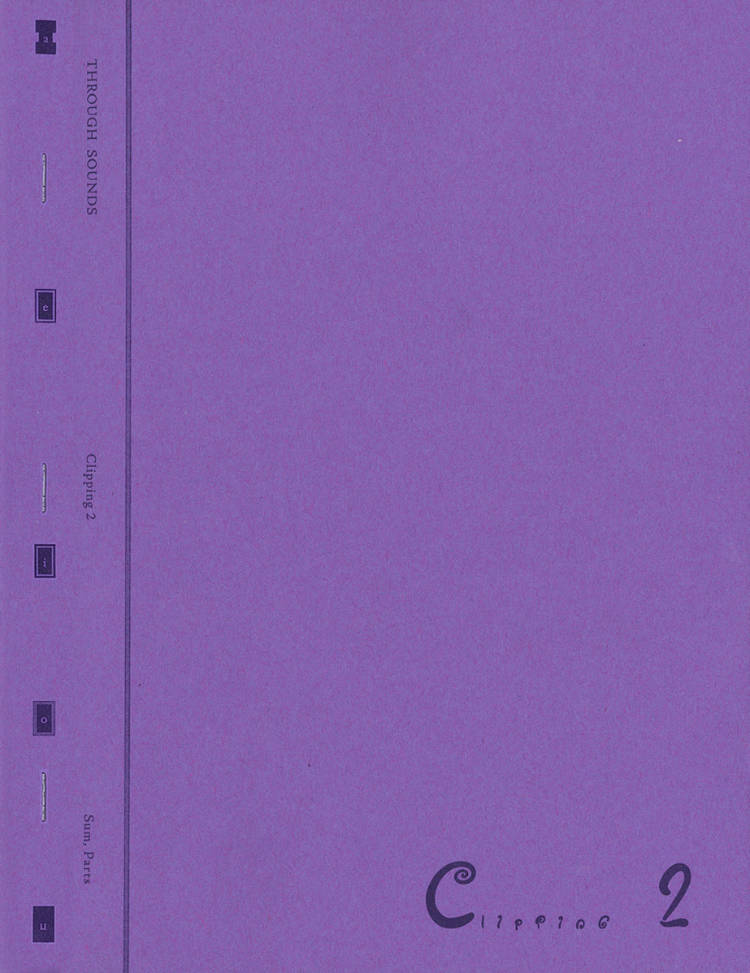
Clipping 2: Sum, Parts
Clipping 2: Sum, Parts brings together transcripts, commissioned texts, studies, and personal reflections that explore how transformation is central to building archives that remain alive through time. Clipping, in sonic terms, signals distortion—moments when excess pushes beyond clarity and opens new spaces of possibility.
The issue features contributions by Monique Todd, Andrea Zarza Canova, Cleo Tsw, Zahra Malkani, meLê yamomo, Melisa Cenik, Golnoosh Heshmati, Voice as Landscape (Alec Mateo and Lorenzo García-Andrade Llamas), Atiyyah Khan, Ibelisse Guardia Ferragutti, Femke Dekker, and Alice Twemlow. It is edited by Federica Notari and Cleo Tsw, designed by Catherine Hu and Cleo Tsw, and printed and bound by No Kiss.
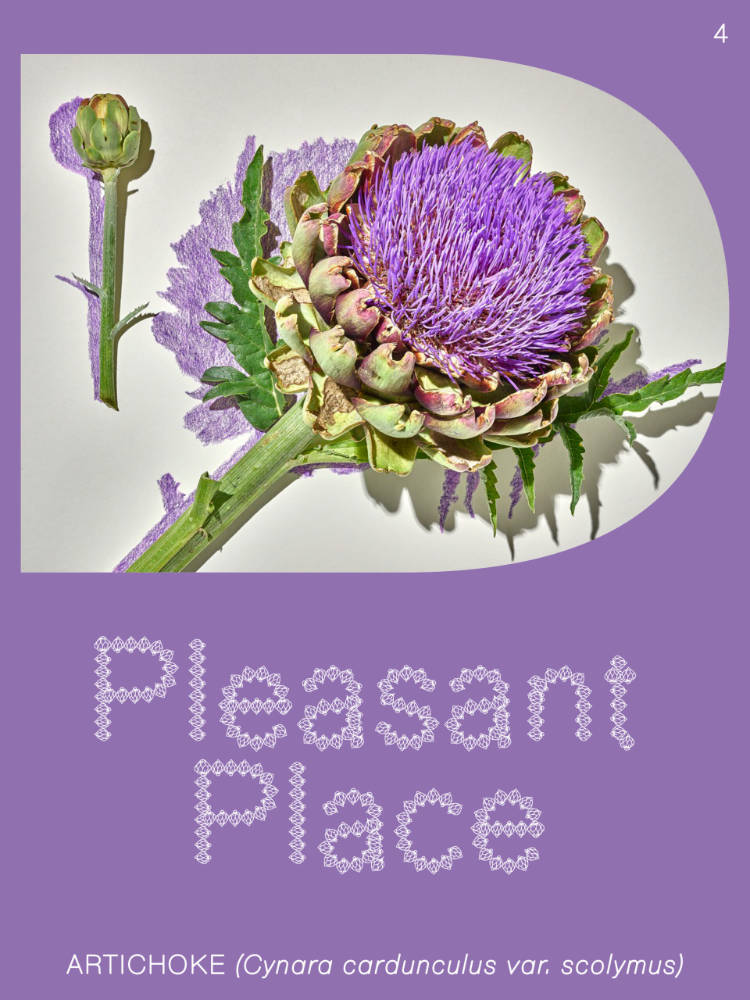
Pleasant Place 4: Artichoke
Guus Kaandorp, Floor Kortman and 1 more
Let’s get to know this monumental Mediterranean thistle, a sweetheart that deserves a place in both gardens and kitchens alike!
Including:
Artichokes: A Botanical Introduction – with botanical illustrations by Scheltens & Abbenes
Chokes in Art History – an overview of artichokes in the art history
Future Finials – Six new garden ornaments
Artichokes: Palatably Plated – A culinary history from around the world
Nostrale from Niscemi – Cultivating artichokes on Sicily
A set of garden miniatures by Kazuma Eekman
The cover is by by Scheltens & Abbenes, the inside cover is by Stephanie Hardy, and graphic design is by fanfare.
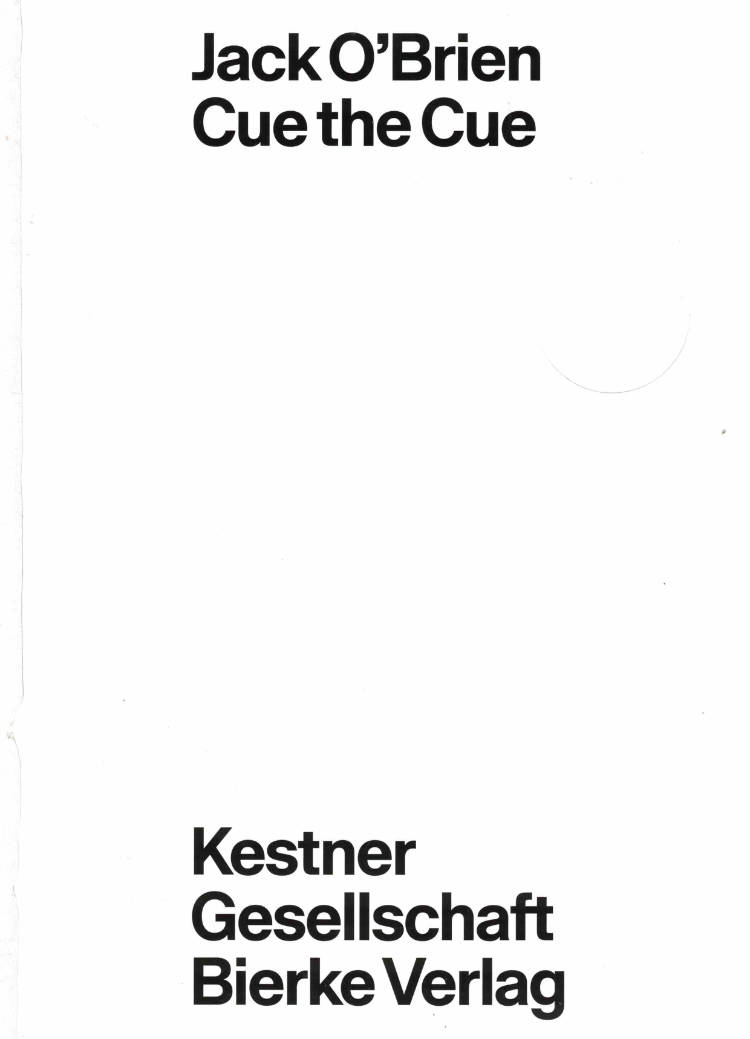
Cue the Cue
This publication accompanying his most comprehensive exhibition to date exhibition is Jack O’Brien’s first monograph. Conceived by the artist himself, it complements the exhibition in both form and content, documenting his practice from 2021–2025 and transfers it into a different medium. Developed as an artist’s book it stands in direct relation to the magazine collages in the exhibition. The torn book cover, perforated paper pages, and a shoelace sealed under cellophane make the publication itself a sculptural gesture.
O’Brien negotiates themes such as staging, visibility, queer identity, and the circular dynamic between consumption, body, and performance. The title refers to the English “cue”—a theatrical cue—and at the same time to its repetition. This double meaning reflects O’Brien’s working method, in which material, form, and gesture continually oscillate between suggestion and withdrawal, presence and dissolution. O’Brien works with found and discarded objects, which he transforms through gestures of wrapping, binding, and perforation. His sculptures, installations, and collages use industrial materials such as cellophane, shrink wrap, and synthetic textiles.
The catalogue brings together the first substantial essays on O’Brien’s work. Alexander Wilmschen introduces the exhibition, in which chance becomes the driving force of reordering, and situates O’Brien’s work within the context of queer phenomenology. Kristian Vistrup Madsen examines the sadomasochistic dimensions of the work. Juliette Desorgues reads the sculptures as embodied punctuation. In conversation with Jeppe Ugelvig, O’Brien reflects on his artistic methodology and language.
The result is a monograph which also formally works with the moments of controlled instability that are so striking in the exhibition: floating, supported and warped.
Texts: Juliette Desorgues, Kristian Vistrup Madsen, Jack O’Brien & Jeppe Ugelvig (Interview) and Alexander Wilmschen
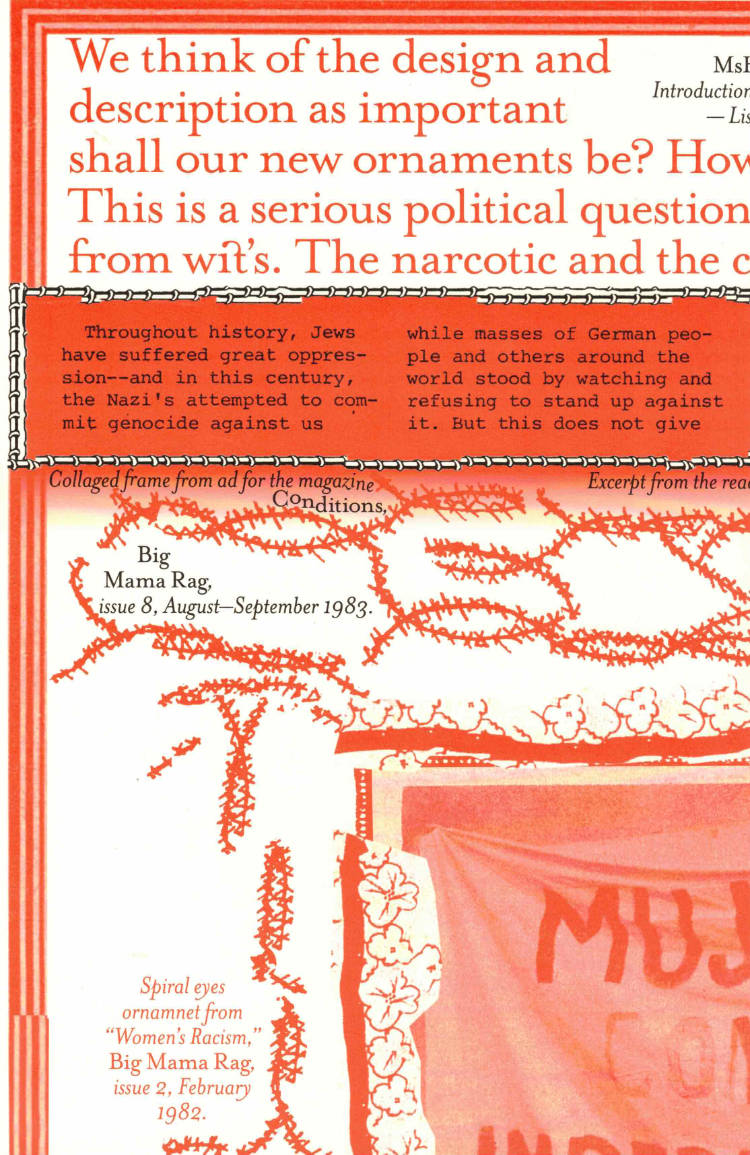
MsHeresies 7 - Introduction to The Weather
This seventh issue, four folded offset-printed posters, publishes sampled and reworked material from the feminist collective and publication Big Mama Rag (1972–84, Denver, Colorado), specifically focusing on the issues and articles dealing with the Palestinian and international feminist struggle. Typeset alongside this archival collage is “Introduction to The Weather” (2001) by poet Lisa Robertson.
4 folded posters (narrow A2)
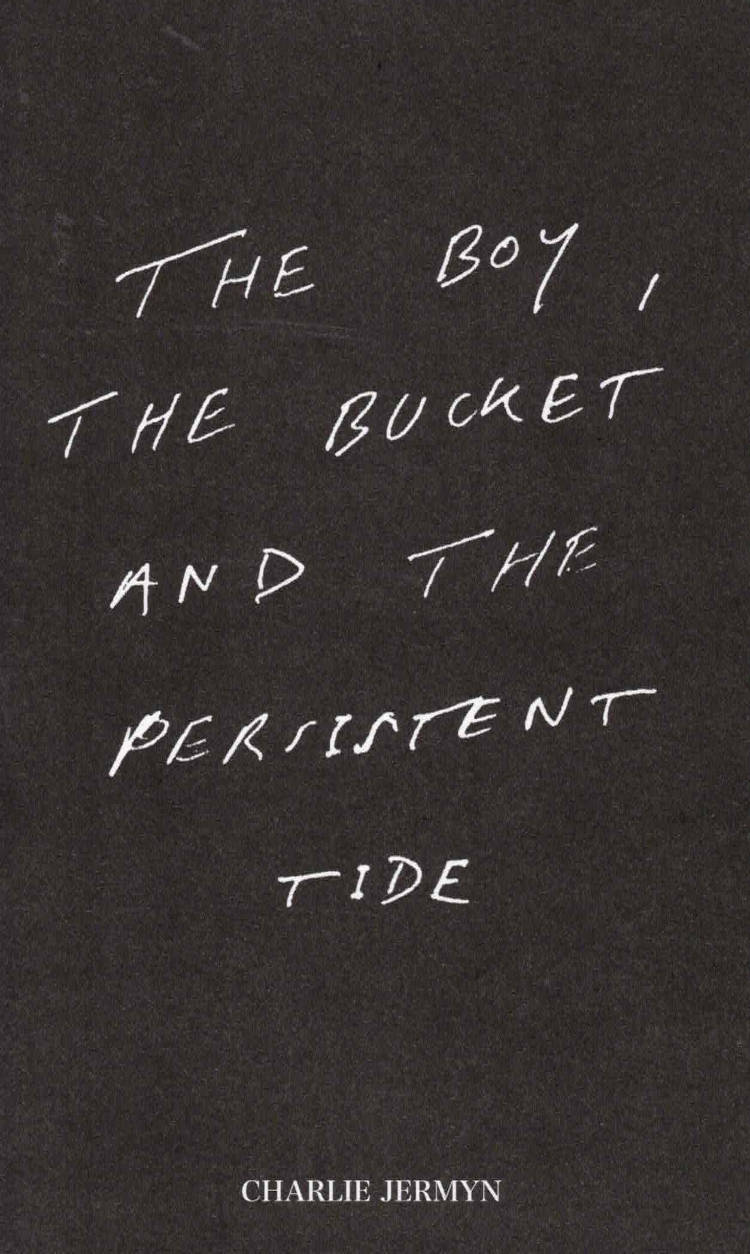
the boy, the bucket and the persistent tide
the netherlands has been the home of irishman charlie jermyn for the last 5 years; it’s a nation that has been dredged up from the water and which attempts, to this day, to hold back the persistent tide. in this brilliant and very-hard-to-describe debut novel, jermyn brings the common and absurd to crisp, shimmering life through his essays and short non-fiction pieces, reminding us to take note of the mad and brilliant world around us before the tide comes in again.
illustrated by samuel van heijningen
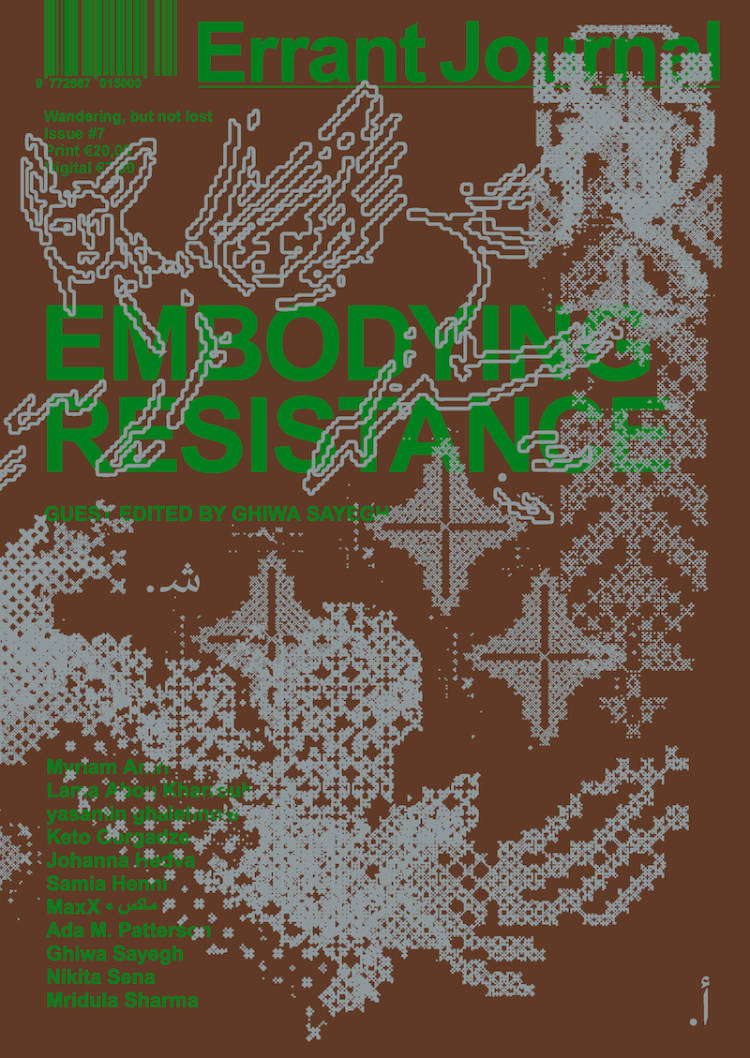
Errant Journal 7: Embodying Resistance
The seventh issue of Errant Journal is guest edited by Ghiwa Sayegh and aims to interrogate the role of the body in strategies of resistance from below. Taking Palestine as a starting point, the ongoing genocide committed by Israel and other colonial powers and the people’s continued struggle for liberation inform the issue’s thinking and praxis. From this political standpoint, it explores the ways in which bodies – that are sexualized, criminalized, racialized, crip – have been able to divert and subvert in order to fight back. To resist from the body is what crip theory tells us is a matter of need. It is a body that no longer fears deviation, specifically because of how cheap our lives are considered and how dangerous our futures are treated. It is about finding community and kinship when we are told we are alone.
Contributors:
Myriam Amri, Lama Abou Kharroub, yasamin ghalehnoie, Keto Gorgadze, Johanna Hedva, Samia Henni, MaxX • ماكس, Ada Maricia Patterson, Ghiwa Sayegh, Nikita Sena, Mridula Sharma
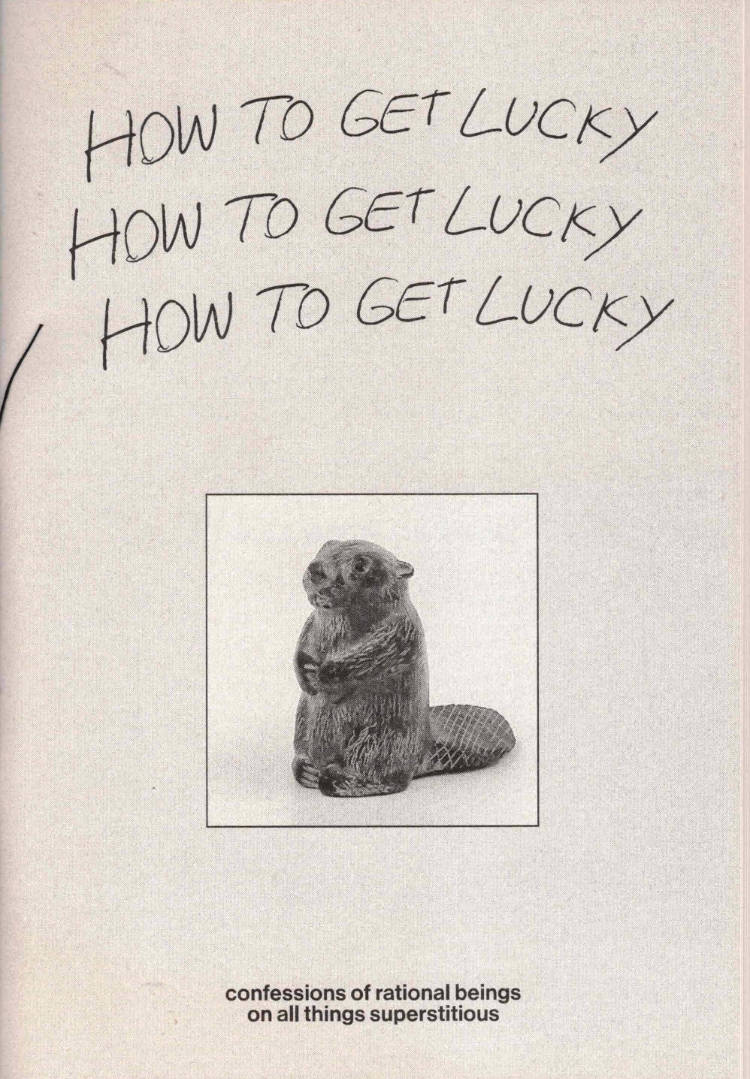
How to Get Lucky
The 24h Book is a series of artist collaborations in book form. Each book is developed and produced according to a rigid schedule and with a clear set of rules and limitations.
Each artist is placed in a space with Studio The Future for 24 hours, during which time all content (including narrative, images, graphic design etc.) is conceived, produced, and printed.
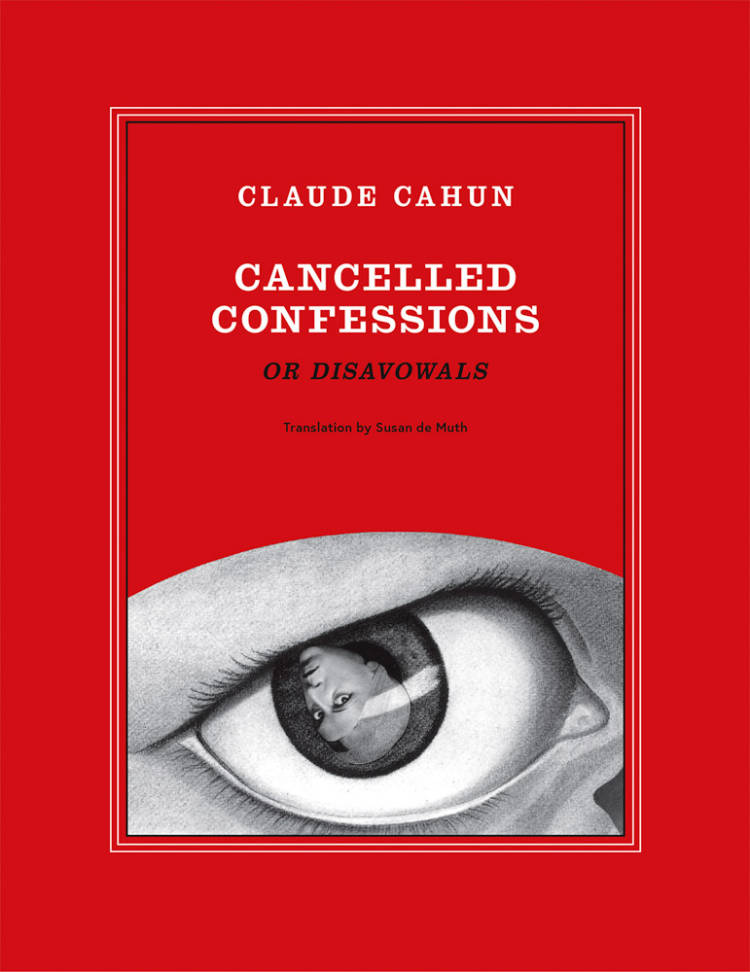
Cancelled Confessions (or Disavowals)
First published in 1930 by anti-fascist, avant-garde publisher Éditions du Carrefour in Paris as Aveux non Avenus, Cancelled Confessions (or Disavowals) is Claude Cahun’s wildly radical answer to an invitation to write a memoir. Shattering the very premise of the “memoir”—the singularity of identity—into sharp and prismatic fragments, Cahun assembles an ever-mutating inquiry into the instability of “self” and its many masks.
Masculine? Feminine? It depends on the situation. Neuter is the only gender that always suits me.
Using a multitude of forms (fables, jokes, aphorisms, letters, dialogues, dreams, hymns, pronouncements, etc.), to plumb the subjects of desire, love, gender, sex, fear, faith, religion, and vanity (among others), Cancelled Confessions (or Disavowals) is a tour-de-force work of resistance: it provokes the reader to enter the capacious, provocative, playful, and deeply imaginative space constructed by Cahun in defiance of all categorization, to repudiate a delimited, censured world and embrace, instead, the outcasts and cast-offs, the unknowable and the unknown.
I believe, but in the conditional: I would like to believe.
Thoughtfully redesigned to emulate the original artist’s book, this revised edition of the out-of-print English translation by Susan de Muth—originally published in the UK by the Tate in 2007 and in the U.S. by MIT Press in 2008—includes novelist and critic Pierre Mac Orlan’s original 1930 preface along with contemporary essays by scholar Amelia Groom and translator de Muth. Almost 100-years-old, it is not only prescient, but urgent, in.
It’s not enough to be vanquished, you also have to know how to turn defeat to your advantage.
Translated by Susan de Muth, preface by Pierre Mac Orlan, essay by Amelia Groom.
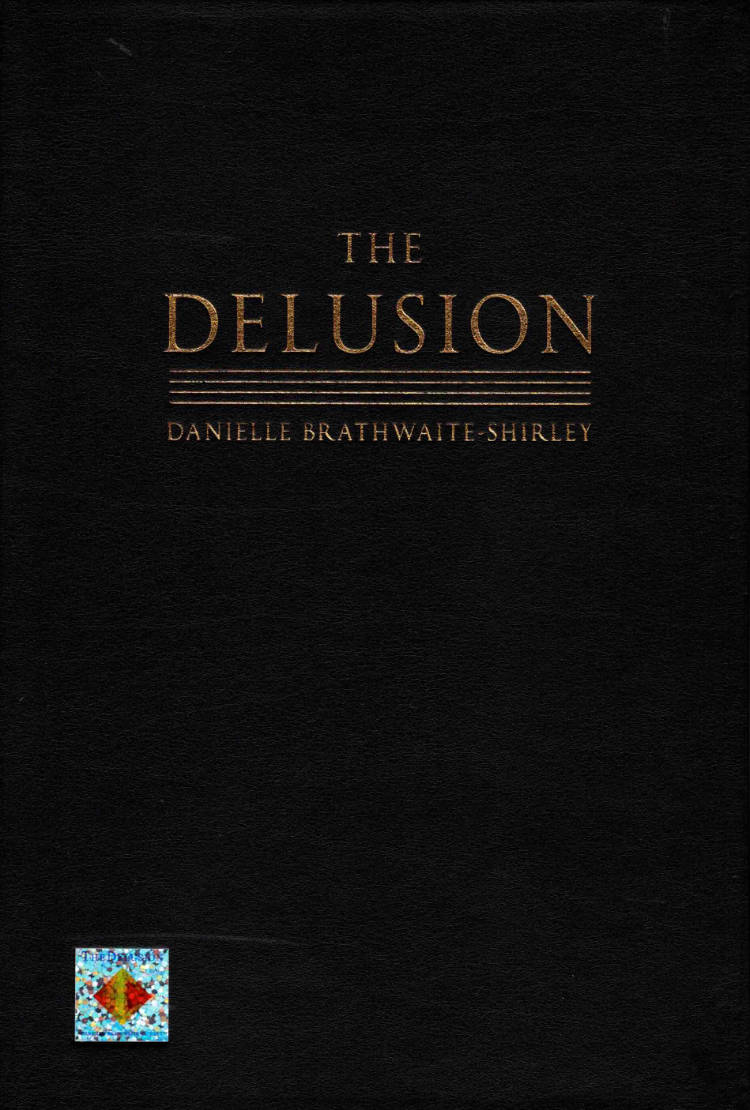
THE DELUSION
Coinciding with Danielle Brathwaite-Shirley’s exhibition, Serpentine and Archive Books have released the artist’s first monograph, THE DELUSION. It imagines a ‘new bible for emotional processing’ and offers intimate insight into the project and the artist’s wider practice, in a gamified, interactive style.
Danielle Brathwaite-Shirley (b. 1995, London) is a Berlin/London-based artist who graduated from the Slade School of Fine Art, London in 2019. Working predominantly in animation, sound, performance, and video game development, their practice intertwines lived experience with fiction to imaginatively retell the stories of Black Trans people. Encouraging the active participation of the visitor-player in their installations, the artist highlights the role of individual choices in shaping narratives and histories.
Contributions by Mckenzie Wark, Helen Starr, Legacy Russell x Mindy Seu, Tamar Clarke-Brown, Danielle Brathwaite-Shirley, Kay Watson, Rebecca Allen, Hans Ulrich Obrist, Shenece Oretha, Rosa-Johan Uddoh, Barby Asante, Ebun Sodipo
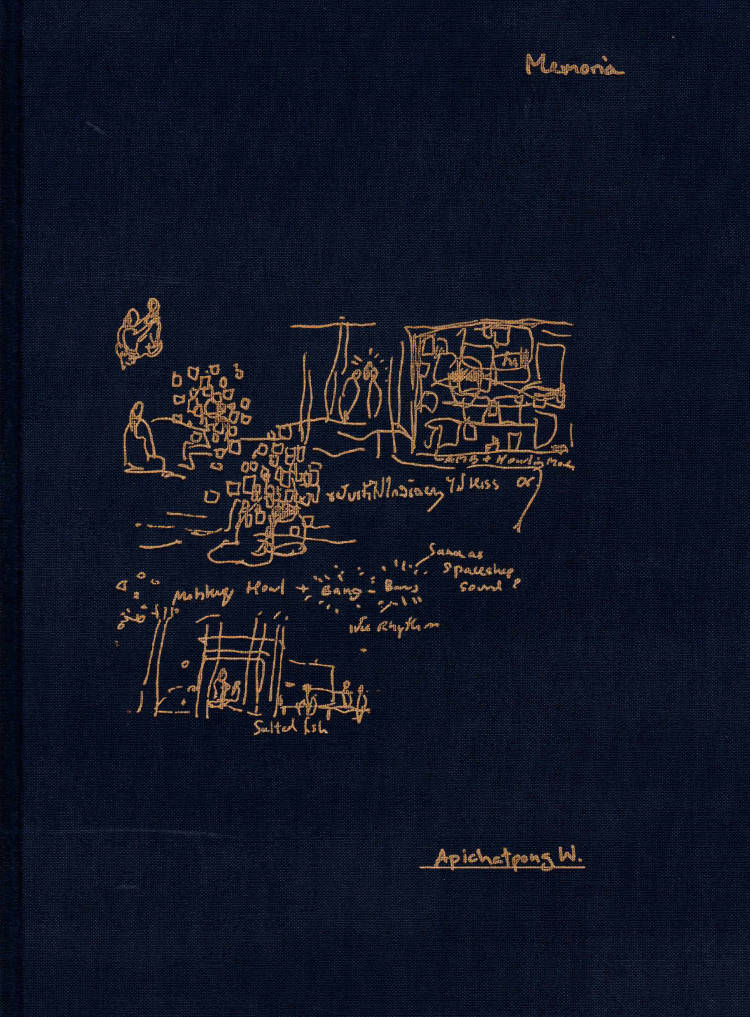
Memoria
A chronicle of the genesis and creation of Memoria, the new film by Apichatpong Weerasethakul. After visiting Colombia in 2017, Apichatpong chose the country as the location for his first feature shot outside of his native Thailand. In the following two years, he returned for several visits and travelled extensively, listening to the stories of the people he met along the way. The book 'Memoria' gathers the memories he collected, in the form of photographs, a personal diary and sketchbook, research notes, treatment excerpts, and email correspondence.
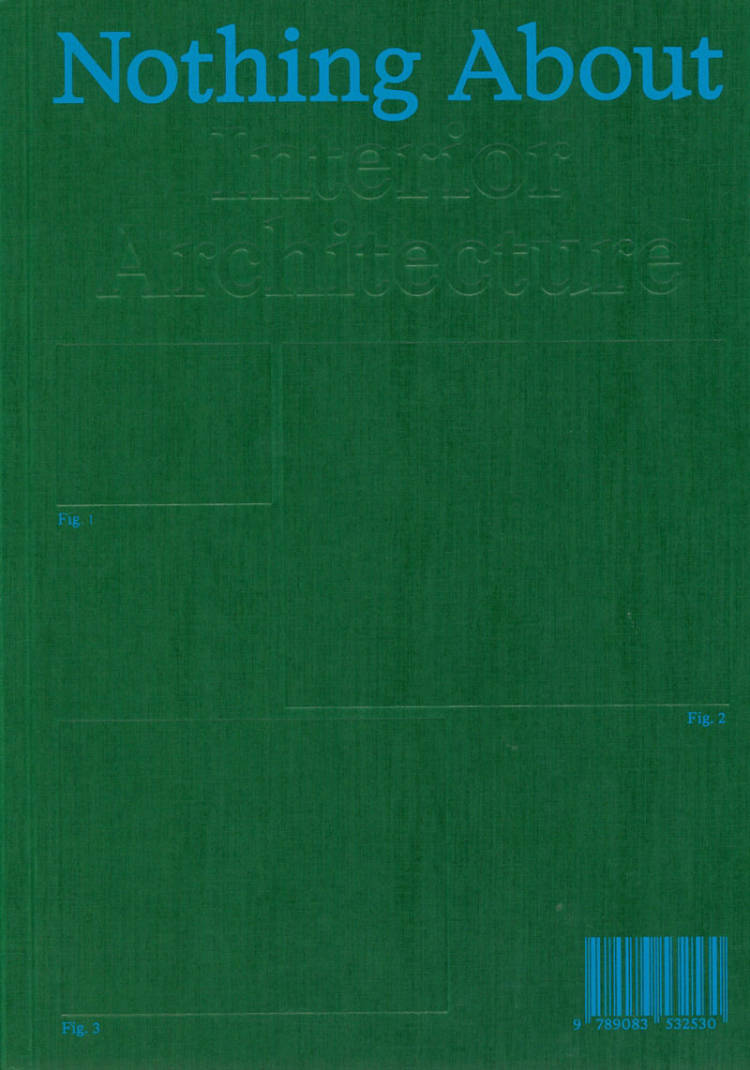
Nothing About Interior Architecture
Javier Fernández Contreras, Youri Kravtchenko and 1 more
Often dissident, sometimes adherent, Nothing About is, in essence, indefinable because it is adaptive and fluid. Speculative or hands-on, this discipline – if we can call it that – displays all the ambivalences of our contemporary lifestyles: superficial and profound, profane and divine, present everywhere and nowhere, and often regarded as futile, even though it could nonetheless destroy the most beautiful of insides. This book brings together a variety of intellectual tools and insights – polysemic and ambiguous, bespoke and improvised, ornamental and criminal, spanning media, technology, the arts and other, often undefined fields – that analyze the impact of the discipline on contemporary design. In the end, what makes Nothing About charming is that this inside – insofar as it is still defined as such – has only the humble ambition of accompanying beings, both animate and inanimate, within their environment, like a friend who is never far away.
Introduction by Javier Fernández Contreras. Text contributions by Daniel Zamarbide, Line Fontana & David Fagart, Valentin Dubois & Bertrand Van Dorp, Camille Bagnoud & Ahmed Belkhodja, Javier F. Contreras & Roberto Zancan, Paule Perron, Philippe Rahm, Youri Kravtchenko, Leonid Slonimskiy, Simon Husslein, Vera Sacchetti, Jan Dominik Geipel, Valentina De Luigi, Jean-Pierre Greff.
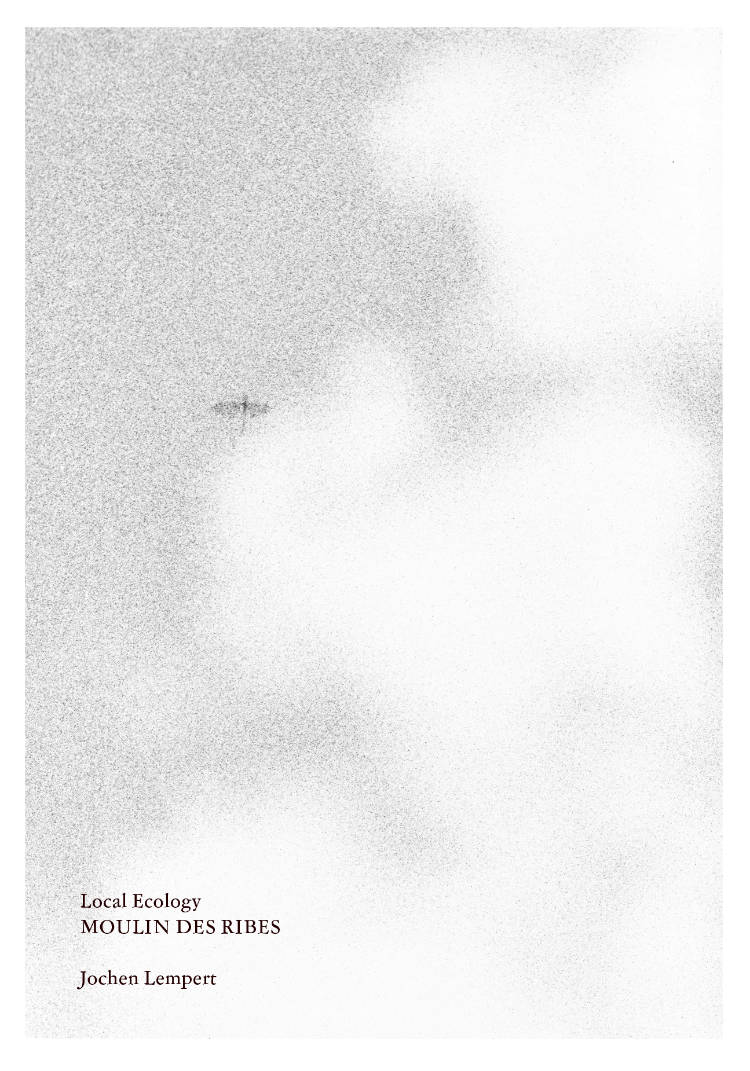
Local Ecology – Moulin des Ribes
A contemplative photographic series by Jochen Lempert, created during a residency at the Moulin des Ribes in Grasse, a former mill nestled in the Provençal landscape.
Known for his background in biology and his distinctive analogue black-and-white photography, Lempert brings a scientific sensitivity and poetic restraint to his exploration of the site's immediate environment.
Shot entirely on location, the images focus on subtle interactions between natural forms and their surroundings. Rather than constructing grand ecological narratives, Lempert observes everyday life in and around the mill, drawing attention to the interdependencies and ephemeral presences that define a place.
With the intimacy of field notes and the tactility of silver gelatin prints, Local Ecology. Moulin des Ribes is both a document and a meditation. It reveals the overlooked ecologies that persist on the periphery of human attention, transforming the act of looking into a form of ecological engagement. In the silence of these photographs, Lempert proposes a different kind of knowledge—rooted in slowness, attunement, and care.
The photographs included in this publication were taken in the summer of 2021 during a residency at La Società delle Api, Moulin des Ribes, Grasse, based on an idea by Cristiano Raimondi.
Jochen Lempert (born 1958 in Moers) is a German photographer. Trained as a biologist specializing in dragonflies, he began his career as a photographer in 1989, at the age of 31, developing an artistic practice based on this scientific heritage, marked by images of nature where the animal and vegetal go hand in hand.
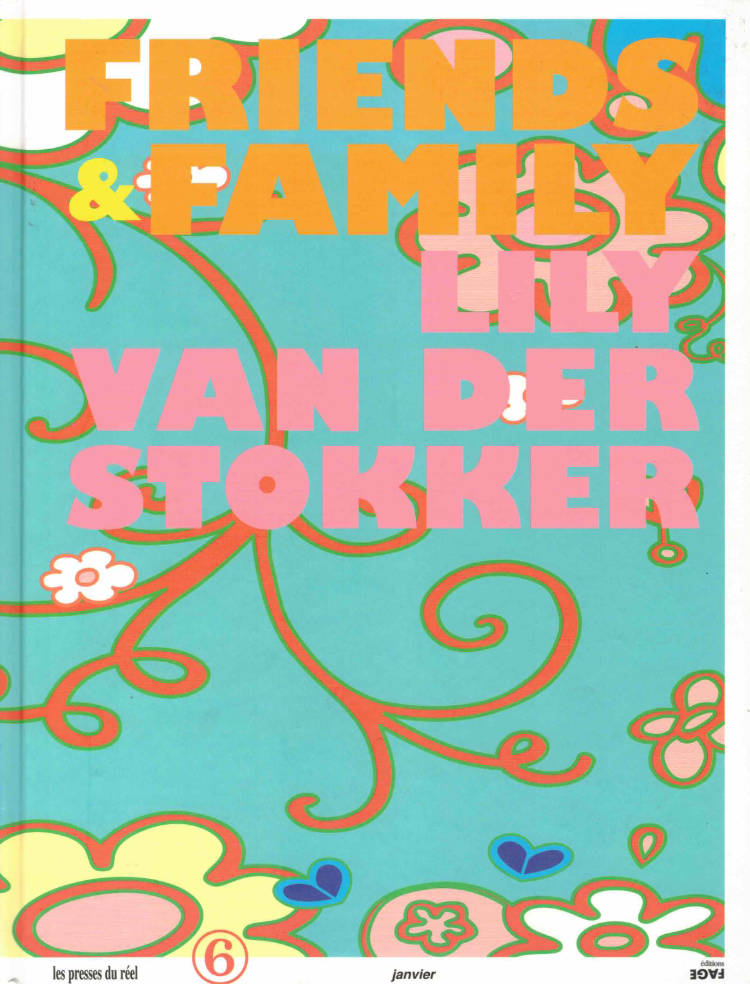
Friends and Family
This first monograph includes all of Van der Stokker's murals and most of her drawings.
In an interview in this collection of Van der Stokker's wall paintings and drawings, John Waters says, 'Millions of teenage girls have drawings that are good, but no one ever tells them that they are'. Van der Stokker celebrates teenage girlishness, and has since 1983 found both immense support and immense rejection within the art world community. Includes interviews with Van der Stokker and a complete presentation of her works in situ, printed on full-page spreads on quality mat paper.
Dutch-born van der Stokker (1954, Hertogenbosch), active artist-gallery owner on the East Side of New York in the 80's, now lives between Amsterdam and New York. She developed pictorial murals with happy candy-coated slogans that incited acid sarcasm from her contemporaries.
Texts by Anne Pontégnie, Éric Troncy, John Waters/Charles Esche, Mirjam Westen, Amy Kellner.
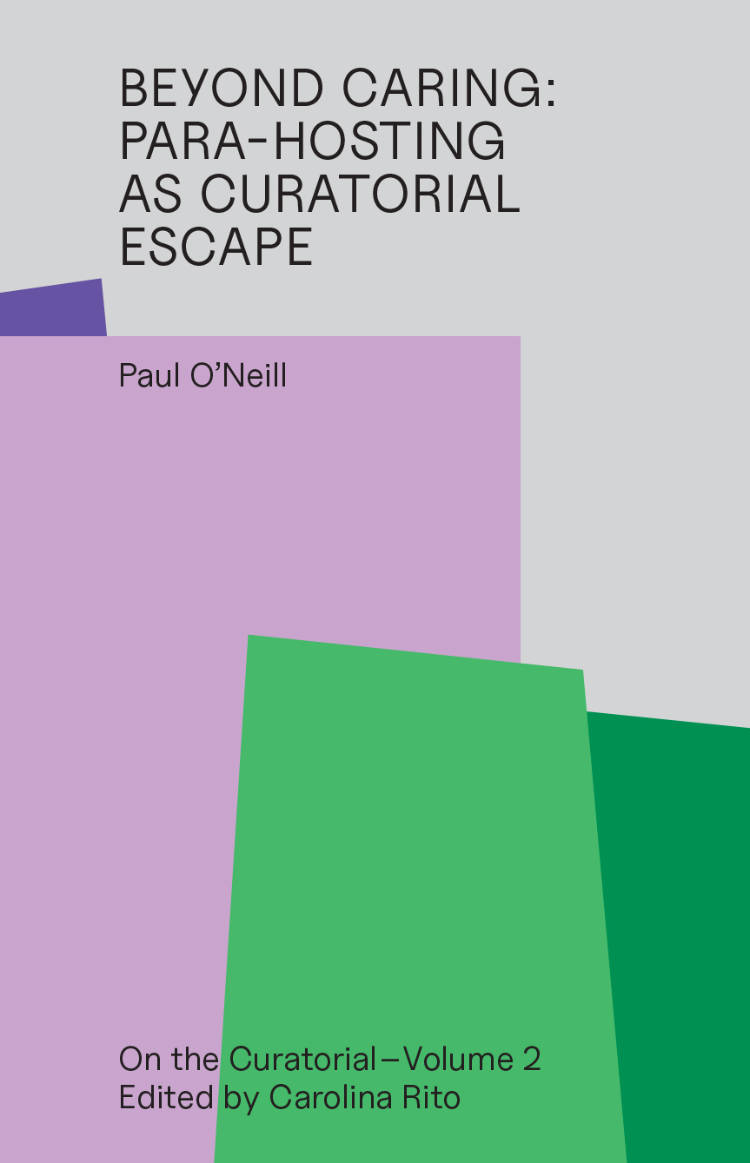
Beyond Caring – Para-hosting as Curatorial Escape
"Para- hosting" as a cooperative methodology for arts institutions.
What can established art institutions learn from small-scale organizations' approaches to invitation, hosting, and publicness? In Beyond Caring: Para-hosting as Curatorial Escape, Paul O'Neill explores how new forms of invitation can reimagine host–guest relations and open escape routes from fixed institutional roles. Moving between speculation, critique, and proposition, the essay introduces "para- hosting" as a cooperative methodology of generosity and self-organization without absorption. For O'Neill, para-hosting is a form of escape that enables transformative possibilities beyond existing power structures within institutions and otherwise.
In the early 2010s, the idea of "the curatorial" arose after a short but intense debate about what it means to curate exhibitions. The books in the On the Curatorial series look at the consequences of that discussion today and ask: Do we need different curatorial tools to engage with deepening social, political, and ecological crises? The series allows earlier participants in the debate to reflect on how their concepts and practices have changed, while younger generations of curators explore the ongoing need for new conceptual approaches to curation.
The series is edited by Carolina Rito, who is professor of creative practice research at the Research Centre for Arts, Memory, and Communities, Coventry University, UK, and executive editor of Contemporary Journal.
Paul O'Neill is an Irish curator, artist, writer and educator. He is the Artistic Director of PUBLICS, a curatorial agency with a dedicated library, event space and reading room in Vallila Helsinki, since 2017.
Edited by Carolina Rito.
Contribution by Gerrie van Noord.
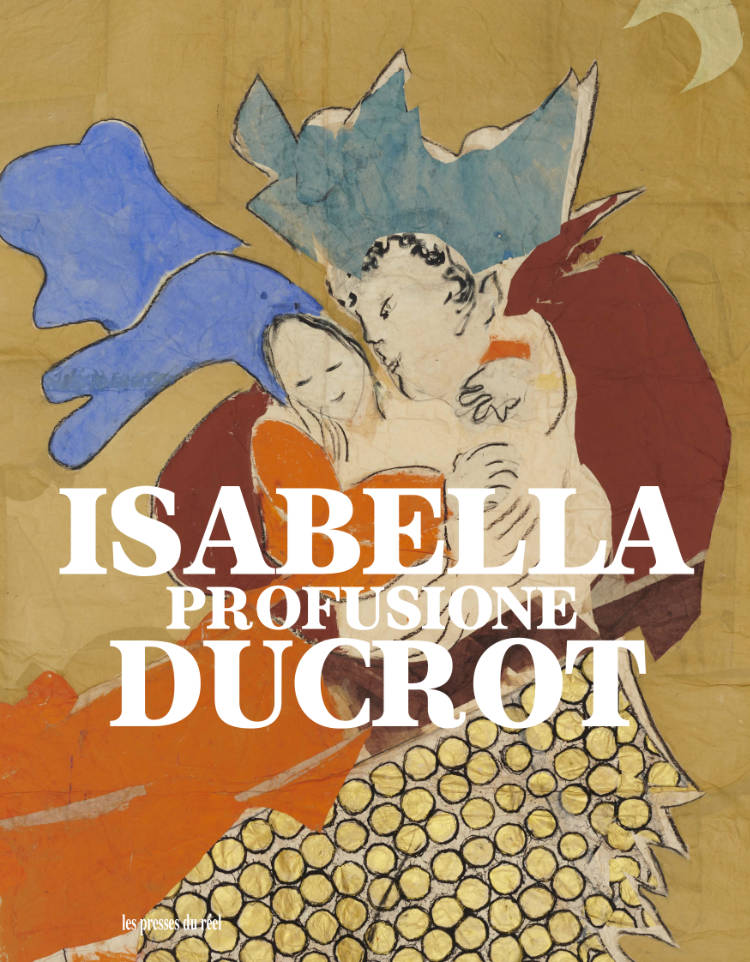
Profusione
A comprehensive overview of the unique work of the Italian artist born in 1931 and "discovered" late on the international scene, with numerous texts and an interview.
Published after the eponymous exhibition at Consortium Museum, Dijon, April 26th – September 8th 2024.
Born in Naples, Italy, in 1931, Isabella Ducrot is a young artist with a young career. Like many women of her generation, she moved into art after raising her children. Her formative years were marked by continuous travels with her late husband, during which they amassed hundreds of Persian miniatures and rare antique textiles of many kinds.
Contributions by Franck Gautherot & Seungduk Kim, Verena Lueken, Tobias Pils, Tschabalala Self, Andrea Viliani, Miranda Fengyuan Zhang.
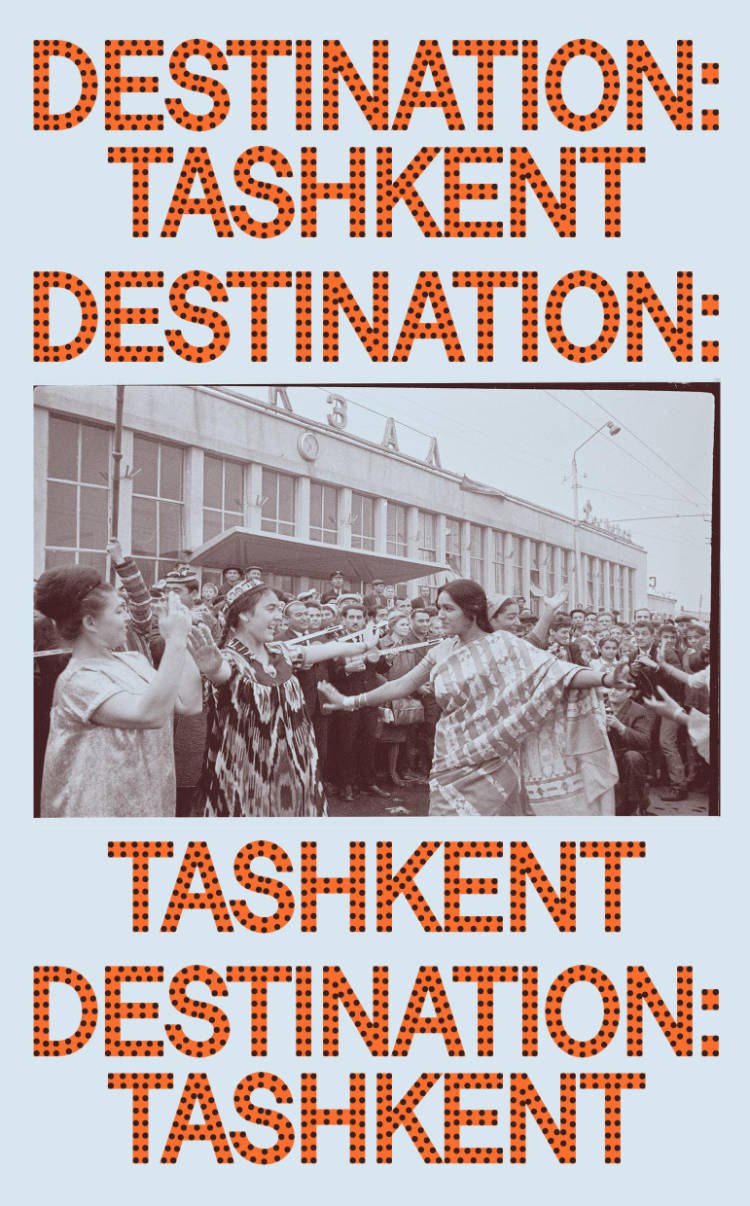
Destination: Tashkent – Experiences of Cinematic Internationalism
The legacy and posterity of the Tashkent Festival for Asian, African and Latin American Cinema, which was held between 1968 and 1988 in Uzbekistan.
Between 1968 and 1988, the Tashkent Festival of Asian, African, and — from 1976 onwards — Latin American Cinema was held in Tashkent, Uzbekistan. As an exercise in soft power and a response to anti-colonial movements and the socio-political upheaval of the late 1960s, the festival grew into a unique gathering for film professionals and became an important platform for South-South solidarity that went beyond the cinema halls of Tashkent. In essays and conversations by researchers, film-makers, and organizers of contemporary film festivals, the Destination: Tashkent Reader reappraises the original festival's programming, while also looking critically at its legacy. From the vantage point of Berlin-based diasporas of Asia, Africa, and Latin America, the reader also investigates how such practices of encounters and collaboration resonate within the film scenes of these three continents today.
Contributions by Cana Bilir-Meier, Souleymane Cissé, Pascale Fakhry, Zach Ramon Fitzpatrick, Sophie Genske, Timur Karpov, Ali Khamraev, Valeriya Kim, Carlos Kong, Bonaventure Soh Bejeng Ndikung, Maren Niemeyer Jacqueline Nsiah, Furqat Palvan-Zade, Marie Helene Pereira, Elena Razlogova, Aykan Safoğlu, Masha Salazkina, Alex Moussa Sawadogo, Can Sungu, Echo Xuedan Tang, Sarnt Utamachote.
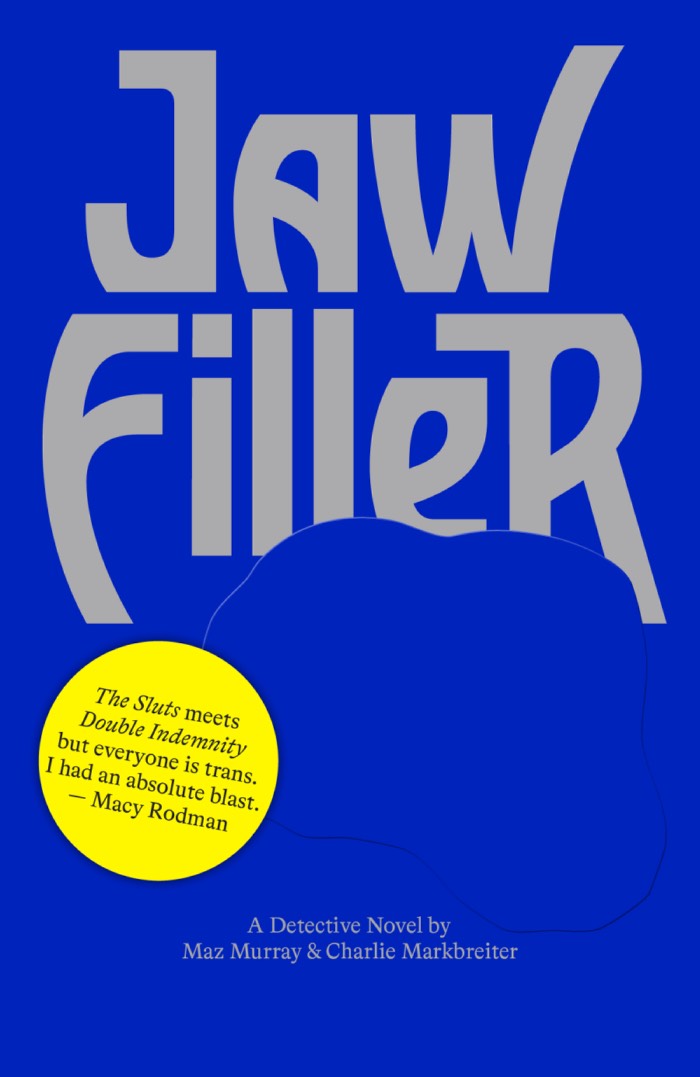
Jaw Filler
Maz Murray, Charlie Markbreiter
'You don't need dysphoria to be trans. You don't need a body at all.’
When Sean Hastings, (the first) transgender private detective, is asked to investigate the disappearance of Character, he enters the First Trans Commune in Sim World, a virtual reality community imagineered by transfluencer Kevin and bankrolled by VSI, a mysterious tech company.
At VSI, representation matters, which is why Taylor, the token QTPOC face, runs their latest project. Haunted by the death of his cis gayguy college bestie and their shared diasporic dilemmas, Taylor sees potential in Kevin’s ability to Release trauma into the virtual world, while Casey, Sean’s ex, seeks Releasing as the latest Long Plague miracle cure. Then femme fatale Mitchelle reappears, and the plot thickens.
A pulpy neo-noir romp through the anxiously assimilated transmasculine id, Jaw Filler asks: who is VSI, and what do they really want? Can you be your own dad? And if Character’s mind is trapped in Sim World, then where is his body?
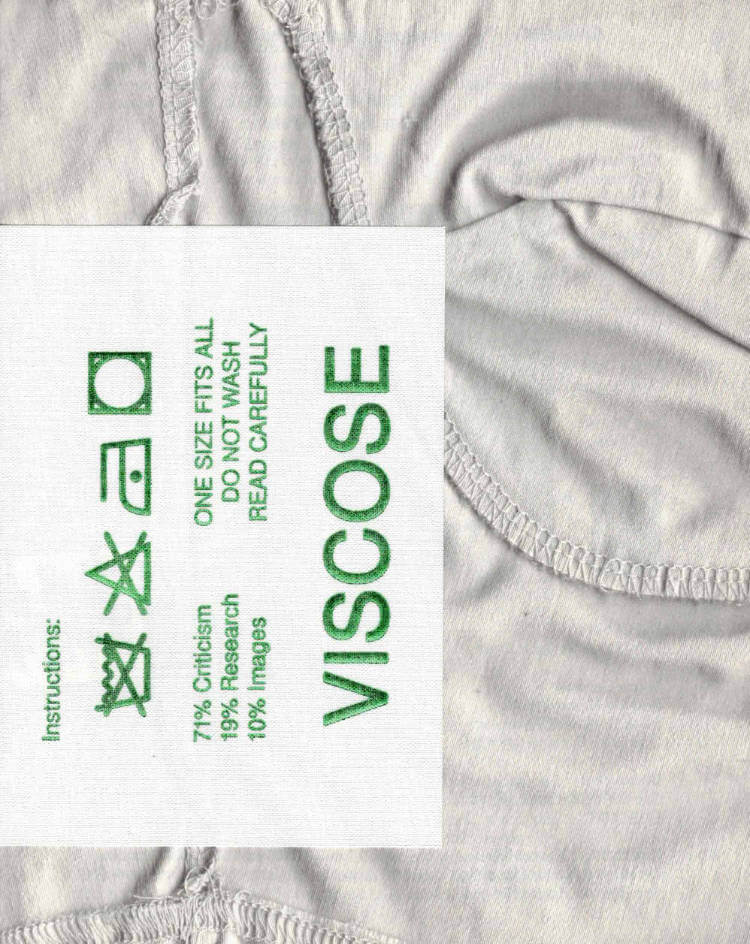
Viscose 02: Clothes
Issue 2 inverts issue 1’s focus on the immaterial notion of style to instead explore the most material of fashion’s building blocks: clothes Clothes are literally everywhere and cite complicated systems of production, distribution, and exchange on their paths around the world. Still, they never fully reveal their journey or destination, and may often signify little else than their own commodity status, the total genericness of the fashion product.
Bringing together a wide range of artists, thinkers, and writers, the issue sets out to explore clothes as a signifier at once empty and over-burdened: as expressions of desires, people and places, as palimpsests for capitalist production cycles and histories of dressed bodies, and even, as nondescript material debris. While not necessarily foregoing an analysis of the fashion system, we hope to develop a form of fashion criticism that begins – and perhaps ends – with the single garment, that takes the everyday use of clothing objects as an intellectual starting point.
What knowledge can we gather from the studying of fashion objects, be they material or immaterial? What is the difference between clothes and fashion? And to which extent is even “fashion” ever successfully signified by things?
with contributions by:
Shanzhai Lyric, David Lieske, Bakri Bakhit, Dena Yago, Matthew Linde, Burke Battelle & Ada O’Higgins, Davide Stucchi, Taylore Scarabelli, Mahoro Seward, Jordan Richman, Giorgi Gago Gagoshidze, Hito Steyerl, & Milos Trakilović, Laura Gardner, Avena Gallagher, Alex Esculapio, Elise by Olsen and Jeppe Ugelvig
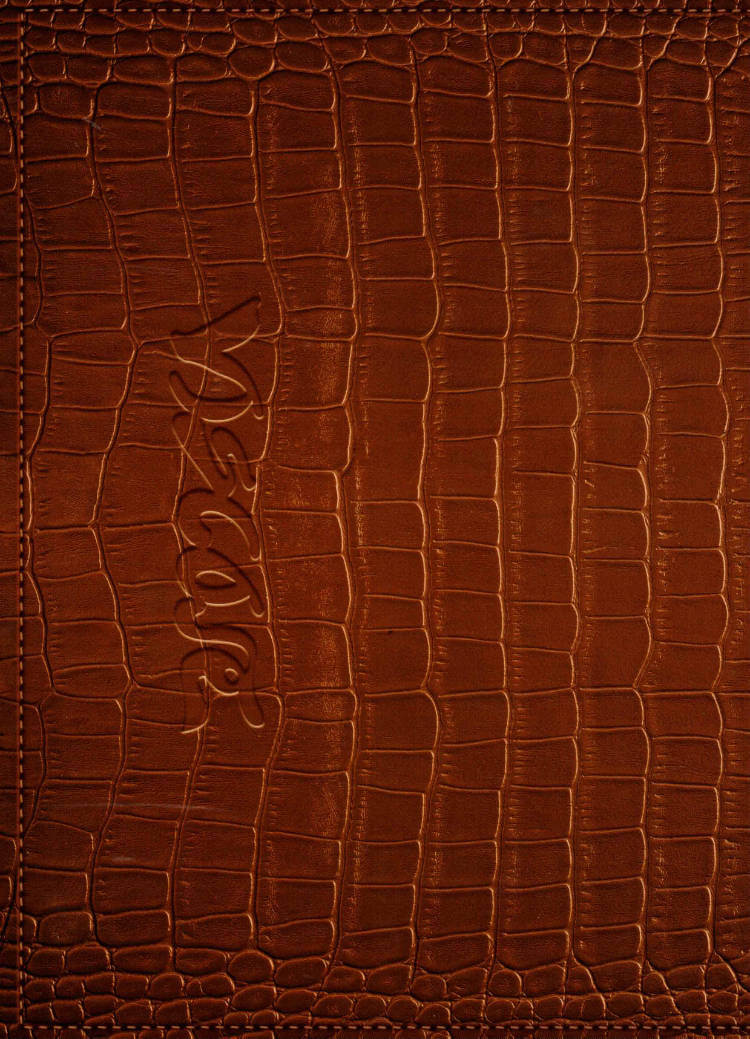
Viscose 01: Style
The very first issue of Viscose tackles the expansive notion of “style”. Both a noun and a verb, style can be understood as the most basic unit or currency of fashion. Style names the very movement of aesthetics in society, and thus holds an important place in the critique of art and visual culture more broadly.
As a verb, it connotes a tactic: a dynamic tool for persuasion and communication through the bricolage of signifiers. It also relates directly to the contemporary profession of “styling”; a practice native to the fashion industry, but increasingly prevalent across the arts, media, consumerism, and politics. Thiss issue of Viscose sets out to critically gesture to all of these connotations and their potential intermingling through concrete case studies and cross disciplinary philosophical speculation.
with contributions by:
Shanzhai Lyric, David Lieske, Bakri Bakhit, Dena Yago, Matthew Linde, Burke Battelle & Ada O’Higgins, Davide Stucchi, Taylore Scarabelli, Mahoro Seward, Jordan Richman, Giorgi Gago Gagoshidze, Hito Steyerl, & Milos Trakilović, Laura Gardner, Avena Gallagher, Alex Esculapio, Elise by Olsen and Jeppe Ugelvig
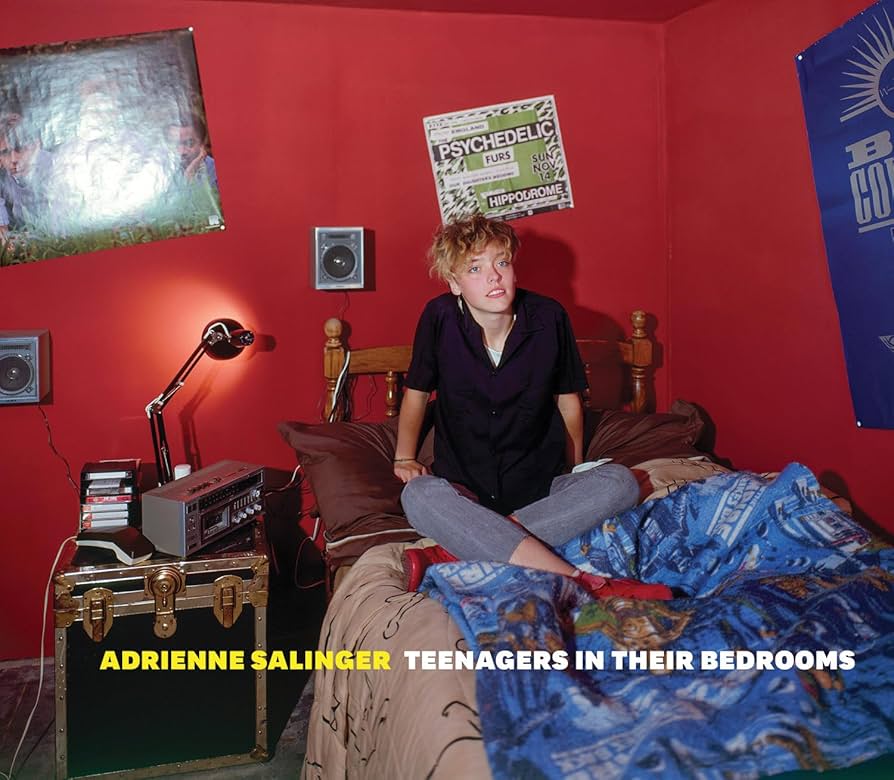
Distributed Art Publishers (DAP)
Teenagers in Their Bedrooms
The new edition of Salinger's ever-relevant series of 1980s and '90s teenagers in their bedrooms.
Bedrooms contain the past, the present and the future; they are sites of continual transformation. Popular culture and fashion continually change and recycle. While specific objects of decor change over time, teenagers' bedrooms are still private sanctuaries: spaces for safely experimenting during a time in life when one is forming and expressing ever-evolving identities.
Upon its release in 1995, Adrienne Salinger's book In My Room was an immediate success, selling nearly 24,000 copies in its first few years. The continued popularity of this work made in the '80s and '90s is curious. However, over the nearly 30 years since, and especially in the most recent decade of social media, the work's appeal has grown tremendously. In some cases, the work evokes nostalgia, but not primarily so. Adrienne Salinger hears from current teenagers often; many send her pictures of their bedrooms today. Social media encourages users to endlessly "rebrand" their identities, creating idealized fantasies, striving for perfection. These photographs are not about perfection. They give voice to the contradictions of our identities.
Hundreds of print and online articles, interviews and features on In My Room have been published and the work has been exhibited at museums all around the world. Long out of print and now considered a classic, with only a rare few available on the secondary market, the book returns in a new expanded edition as Teenagers in Their Bedrooms. With 26 additional photographs, this treasure is made available once more to new audiences.
Adrienne Salinger has published three photobooks: In My Room (1995), Living Solo (1999) and Middle Aged Men (2007). She is Regents Professor Emerita at the University of New Mexico.